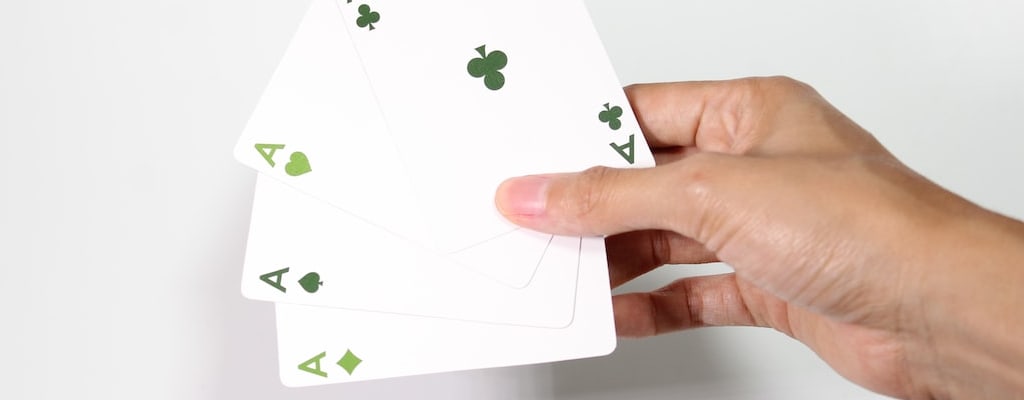know the drill: Idiom Meaning and Origin
What does ‘know the drill’ mean?
When someone says "know the drill," it means that they are reminding you to follow a familiar routine or procedure that you are already familiar with.

Idiom Explorer
The idiom "know which end is up" means to have basic knowledge or understanding of a situation or task.
The idiom "know what is what" means to have a clear understanding or knowledge of a situation or topic. It implies being well-informed and aware of the essential facts or details, allowing one to make informed decisions or judgments.
The idiom "know the score" means to understand and be aware of the situation or the facts.
When someone says they "know someone," it means they are acquainted or familiar with that person. It implies a level of personal connection or understanding between the two individuals.
The idiom "know one's way around" means to be familiar with or knowledgeable about a particular place, task, or subject.
The idiom "know one's shit" means to be very knowledgeable or well-informed about a particular subject or topic. It implies a deep understanding and expertise in that area.
Idiom: know inside and out
Meaning: To know something very well or fully understand it
The idiom "know every trick in the book" means to be knowledgeable and experienced in all the methods, techniques, or strategies related to a particular subject or activity.
The idiom "have one's ducks in a row" means to be well-prepared and organized, with everything in its proper place or order.
The idiom "get with the program" means to understand and conform to the expectations or requirements of a particular situation or group. It implies that someone needs to become more aware, engaged, or up to date with what is happening around them.
Unraveling the Mystery
"Know the drill" is an idiom commonly used in everyday English conversation. It means to be familiar with a specific routine or procedure. The phrase originated from military training, where soldiers are required to follow specific drills or procedures. These drills are repetitive and aim to ensure that soldiers know how to respond quickly and efficiently in various situations. Over time, the phrase "know the drill" has become part of everyday language, referring to being familiar with a routine or procedure.
This idiom is often used to remind or prompt someone to do something they are already expected to know. For example, if someone has been to a particular event or meeting before, and they are told to "know the drill," it means they should be familiar with the agenda or expected behavior. It is a concise and colloquial way of expressing that someone is aware of what needs to be done.
"Know the drill" is commonly used in informal conversations, such as between friends, colleagues, or family members. It provides a shared understanding and avoids unnecessary explanations or instructions. The phrase is understood and used by English speakers across various contexts, regardless of region or social group. However, it may be encountered more frequently in contexts where there is a greater familiarity with military terminology, such as in countries with strong military traditions or in organizations with military connections.
The versatility of the idiom allows for both literal and figurative usage. In its literal sense, it refers to being familiar with a routine or procedure. Figuratively, it can suggest that someone is aware of the consequences or implications of a certain situation, even if they do not explicitly state it. This figurative usage adds nuance to the idiom and allows for a broader range of interpretations.
Now, let's explore how the idiom "know the drill" is related to other idioms:
"know one's way around" is another idiom that is related to "know the drill." It means to be familiar with or knowledgeable about a particular place, skill, or subject. Just like "know the drill," it implies a level of familiarity and expertise. For example, if someone says, "I know my way around computers," it means they have a good understanding of how to use computers and navigate software.
"know every trick in the book" is another related idiom. It means to be familiar with or knowledgeable about every possible strategy or method related to a particular situation. This idiom implies a high level of expertise and experience. If someone says, "He knows every trick in the book when it comes to sales," it means that person has extensive knowledge and experience in the field of sales and knows all the strategies.
"know the score" is a related idiom that means to have information or knowledge about a situation, especially one that is complex or secretive. It suggests being well-informed and aware of the details or facts. For example, if someone says, "She knows the score in the office politics," it means that person is aware of the dynamics and hidden agendas in the office.
The idiom "daily grind" is also related to "know the drill." It refers to the monotonous or repetitive routine of daily life or work. It implies a sense of familiarity with the mundane tasks or activities. For example, if someone says, "I'm tired of the daily grind," it means they are tired of the repetitive and uninteresting aspects of their everyday life or job.
Lastly, "know what is what" is another related idiom. It means to have a clear understanding or knowledge of a particular subject, situation, or issue. It implies being well-informed and not easily fooled or deceived. For example, if someone says, "He knows what is what when it comes to investments," it means that person has a good understanding of the investment market and can make informed decisions.
"know the drill" is an idiom that means to be familiar with a routine or procedure. Its origin can be traced back to military training drills, but it has since been adopted into everyday language. The phrase is commonly used in informal conversations to indicate a shared understanding and to avoid unnecessary explanations. While it is most commonly used in a literal sense, it can also be used figuratively to convey a deeper meaning. The versatility and ubiquity of this idiom make it an essential part of the English language.
Example usage
Examples of how the idiom *know the drill* can be used in a sentence:
- When I arrived at the doctor's office, they asked me if I had been there before and I replied, "Yeah, I know the drill."
- My boss always expects us to be prepared for team meetings and often tells us, "You know the drill, come ready with your ideas and suggestions."
- As the captain of the team, I had to give my teammates instructions before the game. I said, "You all know the drill, we've practiced this a hundred times. Let's go out there and give it our all!"
More "Familiarity" idioms



